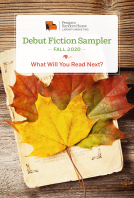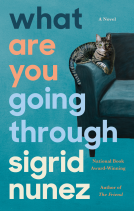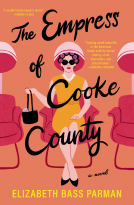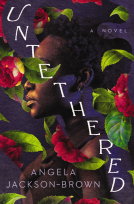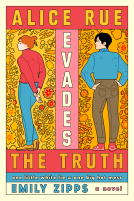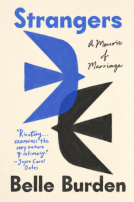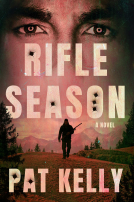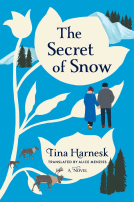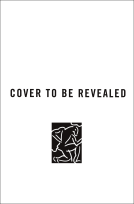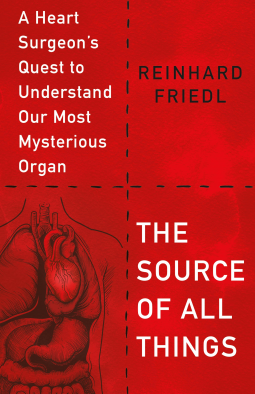
The Source of All Things
A Heart Surgeon's Quest to Understand Our Most Mysterious Organ
by Reinhard Friedl
This title was previously available on NetGalley and is now archived.
Send NetGalley books directly to your Kindle or Kindle app
1
To read on a Kindle or Kindle app, please add kindle@netgalley.com as an approved email address to receive files in your Amazon account. Click here for step-by-step instructions.
2
Also find your Kindle email address within your Amazon account, and enter it here.
Pub Date Aug 24 2021 | Archive Date Sep 07 2021
Description
In the tradition of Henry Marsh’s Do No Harm, Reinhard Friedl's The Source of All Things is a heart surgeon’s personal investigation of the human heart, moving from his riveting clinical experiences to a more poetic understanding of its workings.
The heart is our most important organ. Yet despite that it has not changed since the appearance of Homo sapiens 300,000 years ago, it is also our most mysterious. In most human cultures, it is seen as the source of love, sympathy, joy, courage, strength and wisdom.
What if the heart could answer questions neurosciences can’t begin to? Having witnessed the extraordinary complexity and unpredictability of human hearts in the operating theatre—each one individual, like a fingerprint—heart surgeon Reinhard Friedl looked again at this “primitive pump” to reconcile it with his experiences from thousands of heart operations.
In this book, he presents findings from various scientific disciplines, such as secret connections of the heart and brain and their influence on emotions and consciousness. He reveals the miracle that is the heart that we speak about so often yet is strangely foreign to many human beings.
Full of compelling patient stories, The Source of All Things ends with a plea: that we recognize the heart’s wisdom and adopt a more heart-centered way of living, leading to greater health and more joy.
Available Editions
| EDITION | Other Format |
| ISBN | 9781250274861 |
| PRICE | $26.99 (USD) |
| PAGES | 320 |
Average rating from 9 members
Featured Reviews
 Paul V, Reviewer
Paul V, Reviewer
Quite good. The medical field has known about the heart/brain connection for a while, but like most things, we're gaining a deeper understanding over time. This is a interesting perspective on the topic with examples and stories, and a more. Recommended for the curious and knowledge seekers. Not sure if medical professionals will this or not.
I really appreciate the ARC for review!!
Reinhard Friedl begins his book, The Source of All Things: A Heart Surgeon’s Quest to Understand Our Most Mysterious Organ, from the vantage point of his life as a heart surgeon in Germany. I read an advance reading copy of this book furnished by Net Galley that will go on sale on August 24 and is available for pre-order. He writes in language accessible for the lay reader although he looks with the surgeon’s eye at the wonder of the physical heart throughout the book. Some of his observations take in his expertise as a professional but without the jargon that is above the heads of those without medical training.
He also looks at the emotional heart both from things we know and things we wonder about from the standpoint of its ability to trigger emotions, empathy, and feelings toward others. Then he makes connections between the emotional heart and the physical heart with stories of people who have had experiences that led to some form of interchange between the two hearts as each affected the other. And that’s not all. He adds the brain and wonder about how it connects to both views of the heart. Layers and people’s stories add examples and interest to his points of observation.
He brings together various scientific views, religious insights, and personal experiences to present a more comprehensive view of the heart than just the pump that works all day every day without our thinking much about it until it gives us trouble. The thought-provoking book left me in disagreement here and there, but it also left me in wonder at the relationship of the emotional and physical heart and brain and with a renewed understanding of the importance of living toward both kinds of heart health. It is a book for those who don’t mind looking at things in a new light.
The Source of All Things is a layman accessible look at the interplay between the heart and the mind and emotions from the perspective of a cardiac surgeon. Originally published in German in 2019, this English language translation is due out 24th Aug 2021 from Macmillan on their St. Martin's Press imprint. It's 320 pages and will be available in hardcover, audio, and ebook formats.
I am a medical professional in a histopathology lab. My day job is to prepare cancer biopsies and other patient samples into finished slides to be diagnosed by pathologists. Objectivity is paramount for both quality control and for maintaining enough emotional distance to protect the mental health of the person interacting with the samples. In the same way, the objectivity of a surgeon allows him/her to literally hold an organ in their hands and make the necessary adjustments to allow the patient to heal, if possible. Precisely the same objectivity, erected intentionally as defense, can also build a wall between us and feeling too deeply or completely.
This book is one surgeon's story of his own training, the emotional toll of his work, and his personal growth toward empathy. He's witty and well spoken and the book includes many asides along the way into interesting and enlightening physiology of the body and its inner workings which are mostly hidden from the vast majority.
There are numerous case histories scattered throughout, though the book is not primarily concerned with actual treatment and recovery. It's layman accessible (I don't trust my own judgement on the subject since this is more or less my day job, but I asked a family member who isn't in medicine), and it's meticulously annotated throughout. The chapter notes and bibliography will give ample scope for further reading. Most of the links to peer-reviewed papers are in English, but many will require more in-depth knowledge and aren't especially layman accessible.
I found the translation work to be seamlessly done. It didn't feel as though it had been translated and there weren't any abrupt or odd sentence constructions which felt unnatural or artificial.
As popular science writing, it's appealing and engaging to read. The author has a lot to say about the connections between physiology and emotional health. I personally felt whilst reading that he shaded ever so slightly over into a sort of borderland between hard science and philosophy which (for me personally) felt a little "pop-psych-ish".
Four stars. I would recommend this one for fans of popular science. It would also be a good fit for caregivers, medical professionals, and some patients.
Disclosure: I received an ARC at no cost from the author/publisher for review purposes.
 kATHLEEN G, Reviewer
kATHLEEN G, Reviewer
This look at our most written about organ is accessible and informative. Blending case studies and science with the emotional views of the heart, it takes the reader on an informative journey. There are plenty of notes and references for those who wish to delve deeper. Thanks to Netgalley for the ARC. Interesting read.
Reinhard Friedl is a heart surgeon who takes us on a journey to understand the heart. He presents findings on the connection between the heart and the brain as well as patient stories.
I really enjoyed hearing his patient stories, but I do wish the book was organized better. It would've been cool to read about more patient stories in detail as they were short and sweet (I know some people enjoy that style though). There were scientific studies mixed in that I found very interesting, but again I wish it was better organized. It could've worked better as alternating chapters as it was very messy at times.
I'm really intrigued by medicine, and I did learn a lot of new facts that I didn't know before! Overall, it was a really quick read and I'm glad I gave it a chance.
In his memoir Dr. Reinhard Friedl introduces us to the heart, describing its unique role in the human body, one he considers the most important of any organ. He believes the heart is the “source of all life”.
Dr. Friedl describes the heart’s structure and the basics of how it works, in detailed but non-technical terms. He does not view the heart as a mere pump as it is often described, but as a turbine, an engine.
Then he whisks us into the operating room as he performs a middle of the night emergency surgery to save a man’s life by repairing his damaged aorta. Later, he travels to a home to resuscitate a 34-week premature baby who wasn’t breathing. He describes the challenge of performing a delicate heart surgery on a 24-week premature infant. In all he acted automatically, calling upon years of training, using his mind and hands with precise attention to details, focusing only on the patient’s open chest on the table.
But operating with his brain was not enough for Dr. Friedl. He realized as a heart surgeon he needed to know and use his own heart. He wanted to find out
"Can we sense thing consciously with the heart? May we act from the heart? Is there a connection between the voice of the heart and illnesses, between a fulfilling life and one full of suffering?"
In the remainder of the book, he explores the answer through meditation and deep breathing. He dove into the connection between the heart and the brain, studying philosophy, neurology, genetics, and even quantum physics. He finally concludes
"The greatest challenge for modern medicine is to bring back together the fragments of the human being and integrate them in holistic medicine."
Dr. Friedl’s story wanders at times, as did his journey to self-discovery. One chapter title, Farewell to the Artificial Heart, characterizes the journey he started and continues; reading his memoir may prompt you to start your own journey.
Readers who liked this book also liked:
Yvette Manessis Corporon
General Fiction (Adult), Historical Fiction, Women's Fiction
Marie Bostwick
Historical Fiction, Literary Fiction, Women's Fiction
